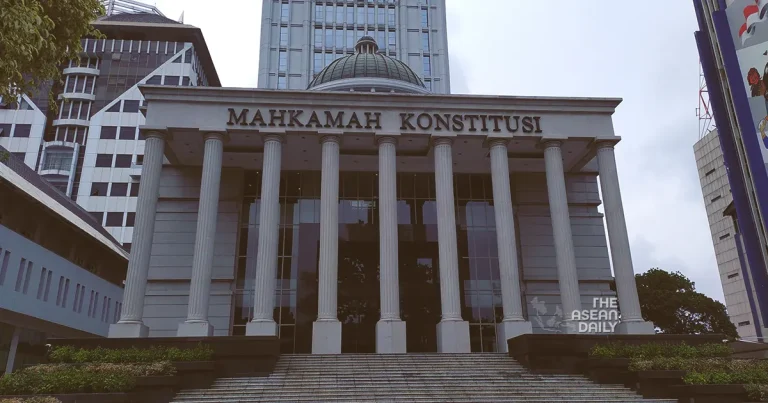22-4-2024 (JAKARTA) In a closely watched ruling, Indonesia’s Constitutional Court has dismissed allegations of irregularities in the government’s social assistance budget leading up to the presidential election. The court’s judges assert that the disbursement of social aid funds was meticulously planned and executed in accordance with existing regulations, refuting claims of impropriety raised by the Anies-Cak Imin camp.
Delivering the court’s verdict, Judge Arsul Sani stated, “The court finds no irregularities or violations of regulations in the utilization of the social assistance budget, as alleged by the petitioners (Anies-Cak Imin), as the budget execution was clearly regulated, from planning, budgeting, implementation, and accountability.”
The Anies-Cak Imin coalition, acting as the petitioners, had challenged the government’s handling of social assistance programs, alleging anomalies in the distribution of aid. However, the Constitutional Court firmly rejected any connection between the allocation of aid to various regions and an intentional effort to sway voter support for any particular candidate.
Judge Arsul Sani emphasized that the social assistance programs were governed by established government protocols, encompassing every stage from planning and budgeting to execution and accountability. The court deemed the direct distribution of aid by the president and ministers as a routine part of the budgetary cycle, with clear guidelines in place.
“This includes the disbursement of social assistance funds in a lump sum and those directly distributed by the President and Ministers, which form part of the regulated budgetary cycle and its implementation,” Sani stated.
Asrul acknowledged that, within the constitutional court’s legal framework and electoral dispute resolution procedures, the court lacks the authority to delve into the underlying intentions behind public policy decisions. Instead, the court’s assessment of the social assistance budget relied solely on adherence to existing laws and regulations.
“Regarding the use and realization of the state budget related to social assistance or other programs, it is crucial for the court to emphasize that the state budget is established annually through legislation, in this case, the 2024 state budget was determined by Law 19/2023,” he explained.
In addition, Asrul noted that among the evidence presented by the Anies-Cak Imin camp, the court found that the only relevant materials were survey results and expert testimonies. However, these were deemed insufficient to conclusively establish a causal link between the disbursement of social assistance and coerced voter choices in the presidential election.
“The interpretation of survey results by experts, as well as the survey results themselves, which were not comprehensively presented or submitted as complete evidence, did not instill the court’s confidence in a positive correlation between social assistance and voter choices based on factual evidence. On this basis, the court finds that the petitioners did not provide empirical evidence demonstrating that social assistance tangibly influenced or coerced voter choices,” Asrul stated.
Ultimately, the Constitutional Court concluded that the petitioners failed to establish a causal relationship between the distribution of social assistance and an increase in vote share for any particular candidate pair, as alleged.
“Nevertheless, regarding the petitioners’ claim linking social assistance to voter choices, the court is not convinced of a causal or relevant relationship between the disbursement of social assistance and an increase in votes for any particular candidate pair,” Asrul concluded.
With this ruling, the Constitutional Court has affirmed the legality of the government’s social assistance programs, while underscoring the need for substantive evidence to support allegations of undue influence on the electoral process.




